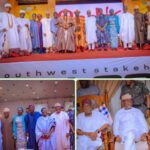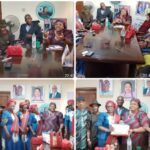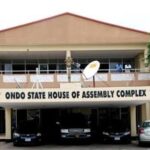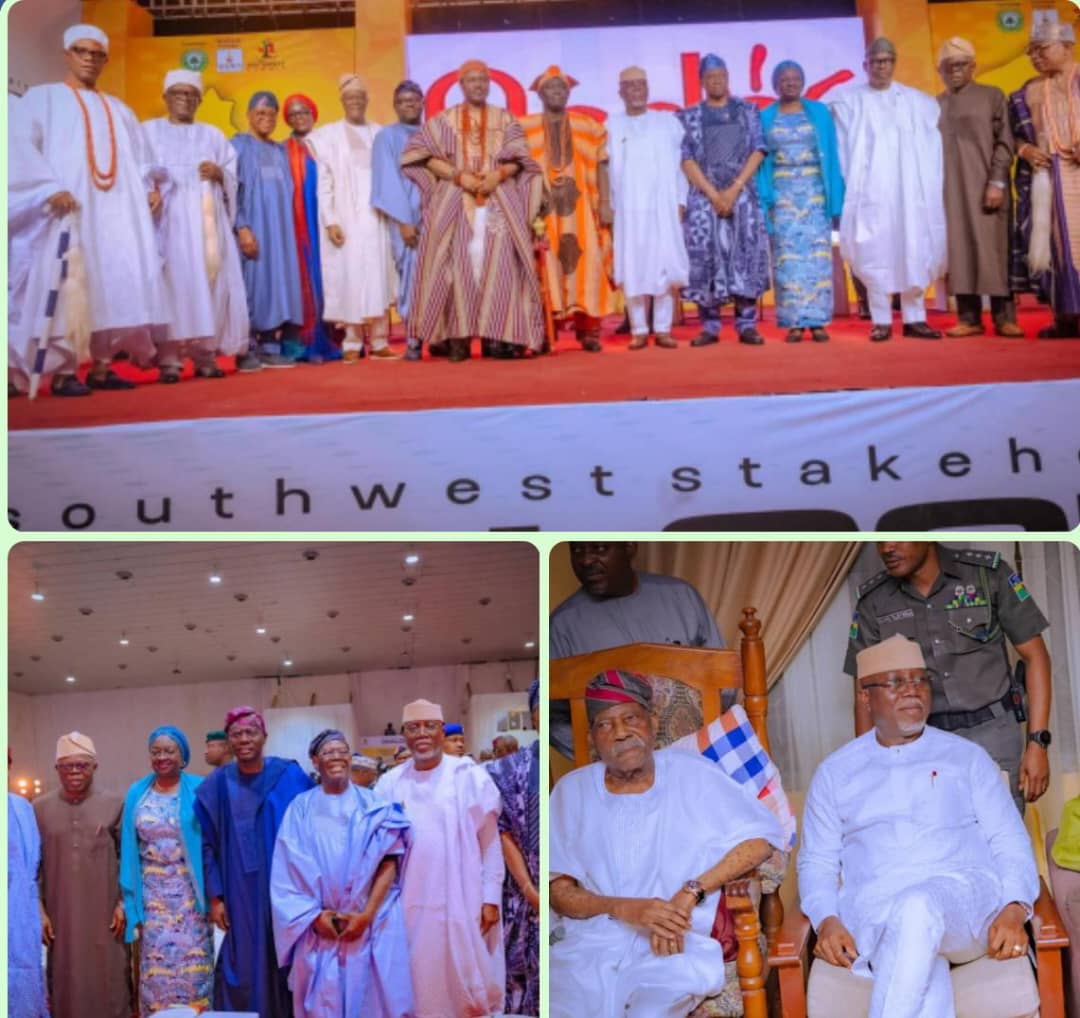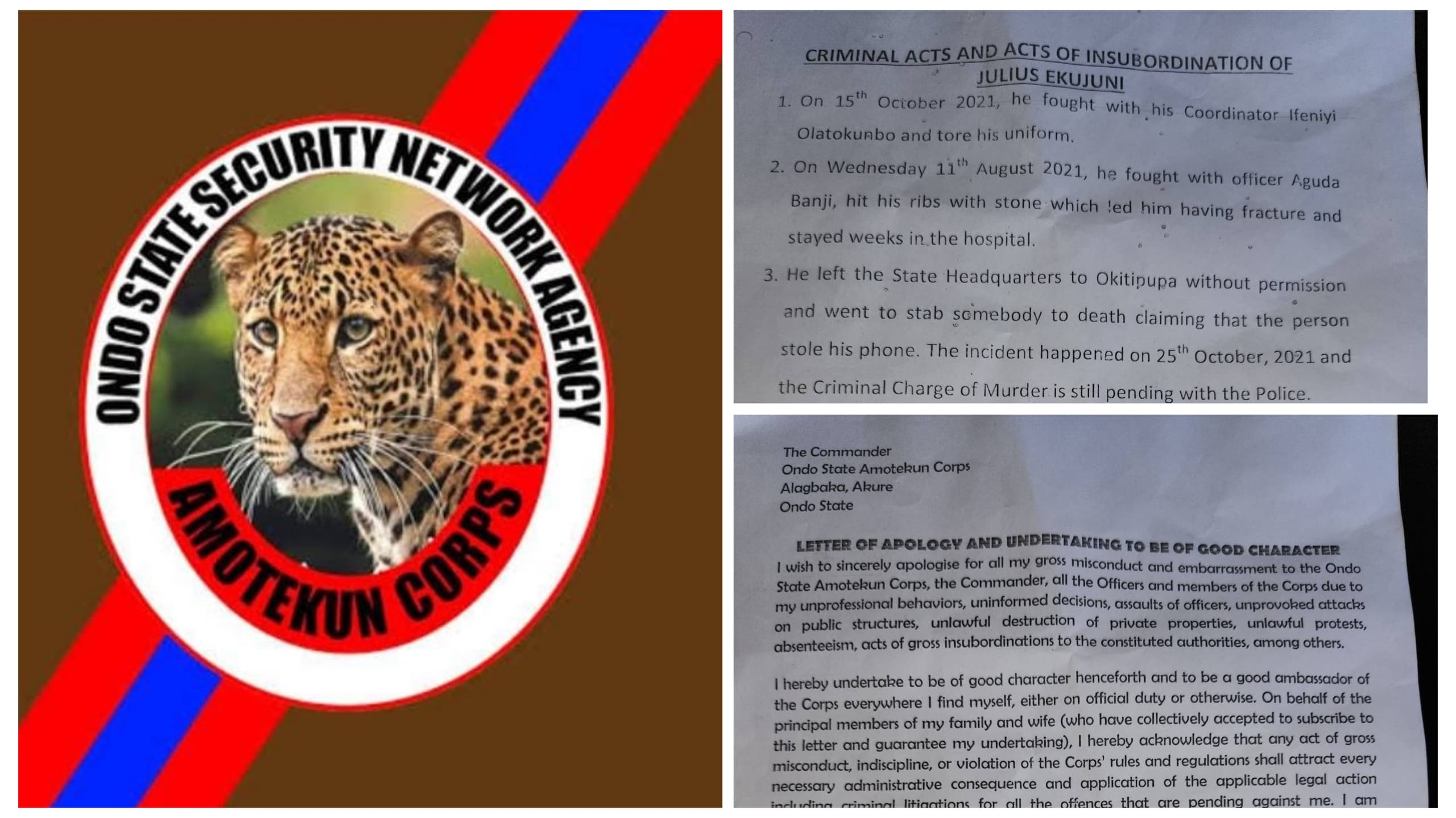…..President says project will foster trade, tourism, seeks counterpart funding
…..Tinubu insists landowners will get compensation, 700km highway a symbol of unity
The President of the Federal Republic of Nigeria, Bola Tinubu, has said the Lagos-Calabar Coastal Highway will give 30 million people improved access to production and marketing centres.
Tinubu disclosed this in his remarks on Sunday in Lagos during the flag-off of the 700km Lagos-Calabar highway project and several others to commemorate his first year in office.
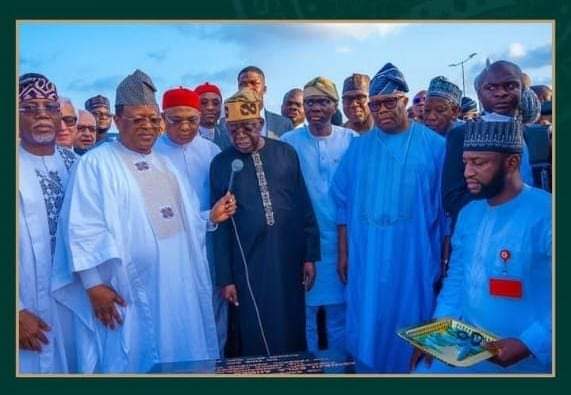
The 10-lane coastal road is intended to link Lagos to Cross River, passing through Ogun, Ondo, Delta, Bayelsa, Rivers, and Akwa Ibom states before ending in Cross River.
PHOTO NEWS:
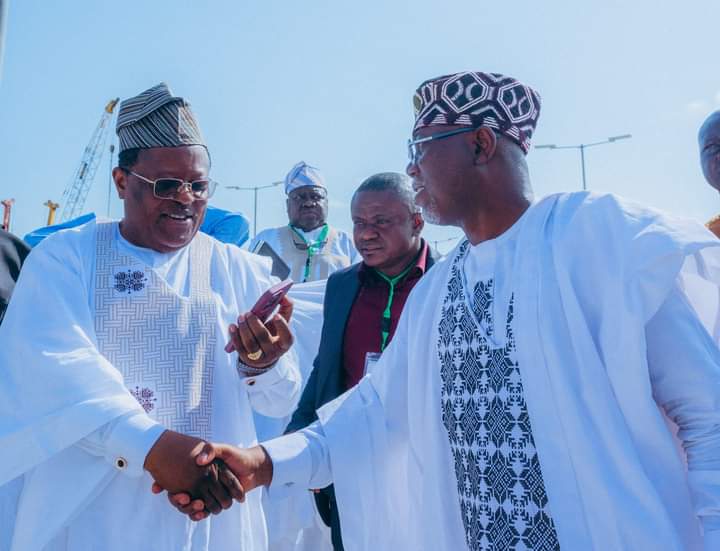
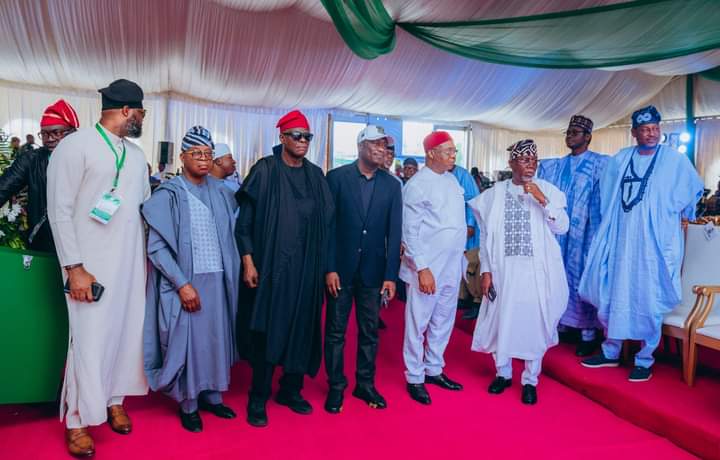
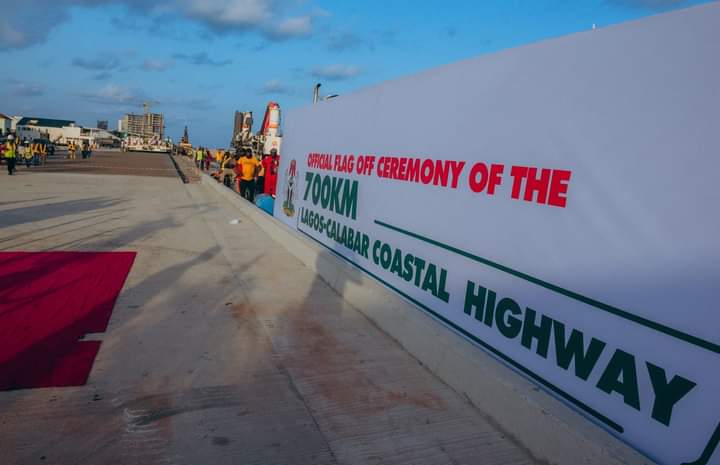
…..Ondo State Governor, Hon Lucky Orimisan Aiyedatiwa, on Sunday joined other governors to witness the flag off of the Lagos-Calabar Coastal Highway and the commissioning of the reconstructed Apapa-Oworonsoki- Ojota expressway by President Bola Ahmed Tinubu, in Lagos….
Tinubu said, “On the next 10 benefits of the Lagos-Calabar coastal highway; during the period of construction, the road will provide direct employment for thousands of people, and indirect employment for tens of thousands of politicians and more. Economic opportunity for millions is being opened.
“It will fast-track the community’s development, It will bring development closer to the people, and give 30 million people improved access to production and marketing centres. You can easily predict a journey, vertically and go along the horizontal line and do the definition of free movement of people.”
In March, the Federal Government started constructing the highway, designed to extend through nine states with two spurs leading to the northern states.
The project, which necessitated the demolition of some buildings, faced significant criticism and interrogation from Nigerians and the National Assembly who believed the timing was inappropriate.
Last Thursday, the Minister of Works, David Umahi, disclosed that 750 houses that are on the path of the Lagos-Calabal coast highway have been marked for demolition.
Umahi had earlier announced an N2.75bn in compensation to property owners affected by the proposed demolition spanning from channel 0 to channel 3 on the mega highway.
However, relevant stakeholders have voiced complaints, arguing that the compensation did not match the investment made.
Responding to the criticism on Sunday, the president further appealed for the understanding of the general public, particularly those whose properties and means of livelihood would be affected by this landmark project.
He appealed, “I further crave the understanding of the general public, especially those whose properties and sources of livelihood will be impacted by this iconic project. We all make some sacrifices to enable our country to grow.
“However, be rest assured that this government is a compassionate government that cares for you and will do the utmost to offer succour, by way of compensation.”
He described the Lagos-Calabar Coastal Highway as a symbol of hope, unity, and prosperity for Nigerians.
He said “This project is more than just a road – it is a symbol of hope, unity, and prosperity. It will connect our communities in nine states, foster trade and commerce, boost tourism, and create new opportunities for generations to come.
“A similar road in Ireland, called the Wild Atlantic Way, 2,600km long is expected to fetch 3bn euros a year in tourism revenues.
“I want to express my gratitude to the team of engineers, workers, and stakeholders who have worked tirelessly to bring us to this point. Your dedication and expertise are the driving force behind the take-off of this project.”
Tinubu emphasised the significance of safety, sustainability, and social responsibility, urging stakeholders to collaborate to ensure that this project benefits all and leaves a lasting legacy for future generations.
He stated “This is not only a legacy project of this administration but a dream come true that will connect some neglected towns and cities along the coastal route. Over time it has been noticed that both Tin Can Island and Apapa ports are becoming shallower thereby limiting the size of ships that can berth at those strategic ports.
“It is pertinent to note that the Lagos State Government in partnership with private investors developed Lekki Deep Sea Port which does not have a link road. It is however obvious that this development will open up businesses and investment along the project corridor.
“The potential of this road is enormous because it will have two spurs which will link up with Sokoto – Badagry Expressway which is under procurement and African Trade Route which connects South East to Cameroon thereby connecting every region of the country.”
Commending the Minister of Works, David Umahi, he noted that the government was waiting on private investors to bring their funds.
He stated “It is worthy to state that the model of EPC+F( Engineering, Procurement, and Construction Plus Finance) which the ministry is adopting is commendable. This sees the Federal Government investing while waiting for private investors to bring on board their counterpart funds.
“I commend the Honourable Minister of Works and the staff of the Ministry who are ensuring that the contractor delivers good quality work.”
Tinubu asserted that the 10-lane road project represented a crucial step in the government’s efforts to enhance connectivity, facilitate economic growth, and improve the quality of life for our people.
He added, “The project is more than a mere road, it is a symbol of hope, unity, and prosperity. It will connect our communities in nine states, foster trade and commerce, boost tourism, and create new opportunities for generations to come.
“To the glory of God and benefit of our people, it is my greatest pleasure to flag off this project and also virtually flag off the spurs about to be procured.
“I also flag off the massive rehabilitation of 330 roads and bridges across the nation. Let the construction begin.”
While commending the dignitaries, Tinubu said everyone wanted a good highway, but no one wanted the government to go through their backyard.
He said, “Everybody, they say, wants a good highway, but nobody wants you to go through their backyard.
“I thank you tremendously, the Chairman of HiTech, Gilbert Chagoury, and my partner, Engineer Roland. We walk together to take the Atlantic and turn a disaster into an asset of great value together.
“We lost weight, we took abuse, but we tamed the Atlantic, we achieved our goals. Here again, we are in it together, thank you, Roland, for being who you are.
“A particular stakeholder, responsible corporate leader, Aliko Dangote, thank you for understanding your field and investment in Africa, and your incapacity to navigate the stormy water business. Yes, Nigeria is going through a patch, but we depend on you to continue doing this, so that other people will emulate and copy your example, thank you, Aliko.”
He said today was a brag day for him as the dream was fearlessly set on a journey determined to build a nation on prosperity and embark on bold endeavours.
“The dream is fearless-able, set on a journey, determined to build a nation of prosperity, embark on bold endeavours so that your country can be successful. Generations yet unborn can have a good landmark, a memory to treasure, and good understanding to copy, and a good education to promote the other generations.
“We said, we would do this road, and we are determined to do it. The way we are going, we have the rule that will outlast us, and have lived all of us here present, that is how to build the future.”
Umahi revealed that the road would be built using concrete pavement.
The government also established a committee tasked with the responsibilities of reviewing, assessing, and compensating landowners affected by the construction of the Lagos-Calabar Coastal Expressway.
Umahi said that the committee, comprising members drawn from the ministry, Lagos State, affected communities, and other stakeholders, had primary responsibilities that included verifying the eligibility of claimants, assessing the dimensions of affected properties, and determining the appropriate compensation amounts.
Source: Punch

